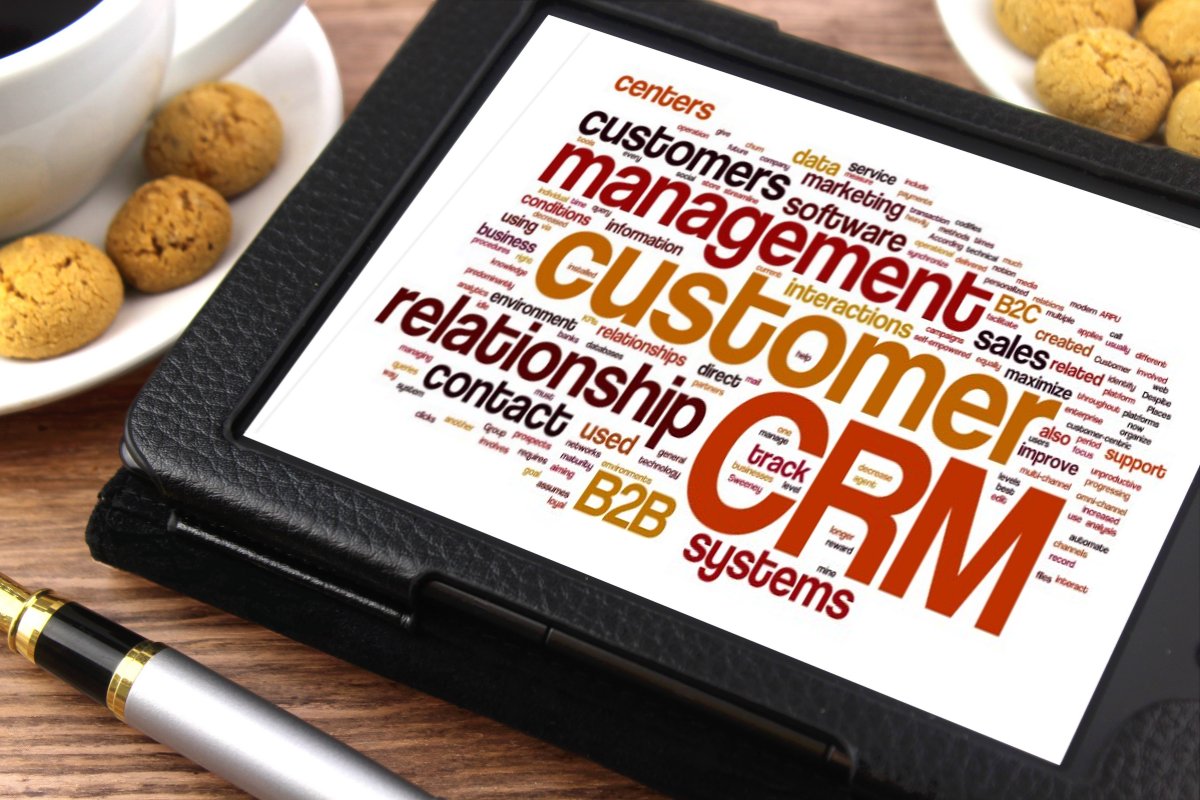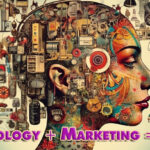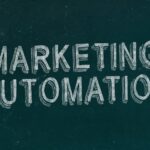Table of Contents
Introduction to Marketing Automation
Marketing automation is a transformative approach that leverages technology to streamline, automate, and measure marketing tasks and processes, allowing businesses to maximize efficiency and drive revenue growth. This strategy enables organizations to nurture leads, personalize customer experiences, and optimize marketing campaigns through the use of software platforms and tools. By automating repetitive tasks such as email marketing, social media posting, and lead scoring, marketing teams can focus on more strategic activities and create targeted, data-driven campaigns.
The goal of marketing automation is to deliver the right message to the right audience at the right time, ultimately fostering stronger customer relationships and improving overall marketing performance. This technology-driven approach not only enhances operational efficiency but also provides valuable insights into customer behavior and preferences, allowing businesses to adapt their strategies for better engagement and higher conversion rates. In essence, marketing automation empowers businesses to scale their marketing efforts intelligently and deliver a more personalized and impactful experience to their audience.

Benefits of Marketing Automation
Marketing automation offers a myriad of benefits for businesses seeking to streamline their marketing efforts and enhance overall performance. One key advantage is improved efficiency, as automated processes reduce manual tasks, saving time and resources for marketing teams. Additionally, marketing automation enables personalized communication with leads and customers, fostering stronger relationships through targeted and relevant content. This, in turn, contributes to increased customer engagement and loyalty. Another notable benefit is the ability to track and analyze data more effectively, providing valuable insights into campaign performance and customer behavior.
This data-driven approach allows for continuous optimization of marketing strategies, resulting in better ROI and more informed decision-making. Moreover, marketing automation facilitates lead nurturing by delivering timely and tailored content to prospects, helping to move them through the sales funnel more efficiently. Overall, the benefits of marketing automation include enhanced productivity, personalized communication, data-driven decision-making, improved customer relationships, and ultimately, a more effective and efficient marketing strategy.
Key Components of Marketing Automation
Marketing automation encompasses several key components that work together to streamline marketing processes and drive efficiency. One fundamental element is a robust CRM (Customer Relationship Management) system, which serves as the foundation for managing and organizing customer data. Email marketing automation is another crucial component, allowing businesses to automate the delivery of targeted messages based on customer behavior and preferences. Lead scoring is an essential feature that assigns a numerical value to leads based on their interactions, helping prioritize and focus efforts on the most promising prospects.
Workflow automation enables the creation of customized workflows to automate repetitive tasks and ensure a seamless and consistent customer journey. Analytics and reporting tools are integral components that provide insights into campaign performance, customer engagement, and ROI, allowing marketers to refine strategies. Social media automation tools enable the scheduling and posting of content across various platforms, ensuring a consistent online presence. Finally, integrations with other marketing technologies, such as content management systems and advertising platforms, enhance the overall functionality and connectivity of the marketing automation ecosystem. These key components collectively contribute to the effectiveness of marketing automation in delivering targeted, personalized, and data-driven campaigns.

Choosing the Right Marketing Automation Platform
Choosing the right marketing automation platform is a critical decision that can significantly impact the success of your marketing efforts. When evaluating options, consider the following factors. First and foremost, assess your business needs and goals. Different platforms offer varying features, so it’s essential to choose one that aligns with your specific requirements. Evaluate the ease of use and user interface of the platform, as a user-friendly system will enhance productivity and efficiency for your team.
Integration capabilities are crucial – ensure that the marketing automation platform seamlessly integrates with your existing CRM, email, and other essential tools to avoid data silos and enhance overall functionality. Scalability is another key consideration; select a platform that can grow with your business and accommodate evolving needs.
Look for robust analytics and reporting features to track and measure the success of your campaigns. A platform that provides insightful data on customer behavior, engagement, and ROI will empower you to make informed decisions and refine your strategies.
Consider the level of customer support and training offered by the platform provider. Responsive customer support and accessible resources can be invaluable for troubleshooting issues and maximizing the platform’s capabilities.
Finally, evaluate the pricing structure to ensure it aligns with your budget and offers scalability as your marketing needs evolve. By carefully considering these factors, you can choose a marketing automation platform that best fits your business requirements and sets the foundation for effective and efficient marketing campaigns.
Crafting Personalized Customer Journeys
Crafting personalized customer journeys is a strategic approach that involves tailoring interactions with individual customers based on their preferences, behaviors, and needs. The process begins by gaining a deep understanding of your target audience through data analysis and segmentation. By segmenting your audience into distinct groups, you can create more targeted and relevant messaging.
Mapping out the customer journey involves identifying touchpoints across various channels, such as email, social media, and website interactions. Each touchpoint is an opportunity to engage with the customer and provide content or offers that align with their specific interests and stage in the buying process.
Utilizing marketing automation tools plays a pivotal role in implementing personalized customer journeys. Automation allows you to trigger specific actions or communications based on customer behavior, ensuring a seamless and cohesive experience. For example, an e-commerce platform may send a personalized recommendation email to a customer who frequently browses a certain product category.
Personalization extends beyond just addressing customers by their names; it involves delivering content and offers that resonate with their preferences and past interactions. This can include personalized product recommendations, exclusive offers, or content that aligns with their demonstrated interests.
Continuous monitoring and analysis of customer interactions enable marketers to adapt and refine the customer journey over time. By leveraging data and insights, businesses can ensure that each customer’s experience is not only personalized but also evolves with their changing preferences and behaviors. Ultimately, crafting personalized customer journeys fosters stronger relationships, enhances customer satisfaction, and increases the likelihood of conversion and loyalty.
Automation in Lead Generation
Automation plays a crucial role in optimizing the lead generation process, streamlining tasks, and increasing overall efficiency for businesses. One key aspect of automation in lead generation involves the use of marketing automation tools. These tools enable businesses to automate various aspects of their marketing campaigns, from initial lead capture to nurturing and conversion.
Automated lead capture mechanisms, such as website forms, chatbots, and landing pages, help collect valuable information about potential customers. This data can include contact details, demographics, and specific interests, allowing businesses to create a more targeted and personalized approach.
Lead scoring is another area where automation proves beneficial. By assigning scores to leads based on their interactions and behaviors, businesses can prioritize and focus their efforts on leads that are more likely to convert. Automation allows for the continuous monitoring of these interactions, ensuring that lead scores are updated in real-time.
Email marketing automation is a powerful tool for nurturing leads over time. Automated email sequences can deliver relevant content, promotions, and educational materials to prospects, keeping them engaged and moving through the sales funnel. This targeted communication helps build relationships and increases the likelihood of conversion.
CRM (Customer Relationship Management) systems with automation capabilities further enhance lead generation efforts. These systems can automate tasks such as lead assignment, follow-up emails, and even the scheduling of sales calls, allowing sales teams to focus on high-priority leads.
Furthermore, automation facilitates the integration of various marketing channels, ensuring a cohesive and consistent lead generation strategy across platforms. Social media automation, for example, can schedule posts, track engagement, and generate leads from social platforms seamlessly.
In summary, automation in lead generation streamlines processes, improves targeting, and enhances the overall effectiveness of marketing efforts. By leveraging automation tools, businesses can generate and nurture leads more efficiently, ultimately contributing to increased conversion rates and business growth.

Measuring and Analyzing Campaign Performance
Measuring and analyzing campaign performance is a critical aspect of any marketing strategy. Utilizing key performance indicators (KPIs) such as conversion rates, click-through rates, and engagement metrics allows marketers to assess the effectiveness of their campaigns. Analytics tools provide valuable insights into audience behavior, enabling a deeper understanding of what resonates with customers. By tracking and analyzing these metrics, marketers can make informed decisions, optimize campaign elements, and refine strategies for better results. Regular performance assessments contribute to a data-driven approach, ensuring that marketing efforts align with business goals and are continuously adapted to meet evolving customer needs and preferences.
Challenges in Implementing Marketing Automation
Implementing marketing automation, while beneficial, comes with its set of challenges. One common hurdle is the complexity of the technology itself. Marketing automation platforms often require a learning curve, and teams may face challenges in fully utilizing the features and functionalities. Integration with existing systems, such as CRM software, can also pose difficulties, leading to potential data silos.
Another challenge is the need for quality data. Effective automation relies on accurate and up-to-date information about leads and customers. Incomplete or inaccurate data can lead to misguided automation efforts and impact campaign performance.
Maintaining a human touch in automated interactions is another concern. Striking the right balance between personalization and automation can be challenging, as over-automation may result in a loss of genuine connection with the audience.
Additionally, marketing teams may struggle with content creation for personalized campaigns. Developing and curating content that resonates with diverse segments requires effort and creativity, posing a challenge in sustaining engaging and relevant communication.
Moreover, there can be resistance within the organization to fully embrace automation. Some team members may fear job displacement or lack confidence in the technology, necessitating comprehensive training and change management strategies.
Lastly, measuring the ROI of marketing automation efforts can be complex. Attribution models and determining the impact of automated campaigns on revenue generation may pose challenges, making it crucial for organizations to establish clear metrics and benchmarks for success. Addressing these challenges requires a holistic approach, combining technological expertise, data management strategies, and a commitment to ongoing learning and adaptation.
Success Stories: Real-world Examples
Drawing inspiration from real-world success stories, this section highlights companies that have significantly benefited from marketing automation. Examining their journeys provides valuable lessons and insights for businesses looking to embark on their automation adventure.
Future Trends in Marketing Automation
The landscape of marketing automation is ever-evolving, driven by technological advancements and changing consumer behaviors. As businesses look to stay ahead in the digital realm, it’s crucial to explore the emerging trends that are shaping the future of marketing automation.
1. Integration with Artificial Intelligence (AI)
Artificial intelligence is set to revolutionize marketing automation by introducing predictive analytics and machine learning capabilities. AI algorithms can analyze vast amounts of data, providing insights into customer behavior, preferences, and trends. This integration allows for more accurate predictions and personalized interactions, enhancing the overall effectiveness of marketing campaigns.
2. Hyper-personalization for Enhanced Customer Experience
The future of marketing automation lies in hyper-personalization. Beyond simple segmentation, businesses will leverage advanced data analytics to create highly personalized customer experiences. Tailoring content, product recommendations, and communication based on individual preferences will become the norm, fostering stronger connections between brands and customers.
3. Chatbots and Conversational Marketing
Chatbots powered by AI are becoming integral to marketing strategies. These virtual assistants engage with customers in real-time, providing instant support and information. As technology improves, chatbots will evolve into sophisticated conversational agents, delivering a seamless and personalized experience throughout the customer journey.
4. Cross-channel Marketing Orchestration
The future demands a cohesive and integrated approach to marketing across various channels. Marketing automation platforms will seamlessly orchestrate campaigns across email, social media, mobile, and other channels. This ensures consistent messaging and a unified brand experience, irrespective of the platform through which customers interact.
5. Emphasis on Customer Retention Strategies
While lead generation is crucial, the future will witness a heightened focus on customer retention. Marketing automation will play a pivotal role in nurturing existing customer relationships through targeted campaigns, loyalty programs, and personalized communication, ultimately driving long-term customer loyalty.
6. Increased Use of Predictive Analytics
Predictive analytics will empower businesses to anticipate customer needs and behaviors. By analyzing historical data, businesses can proactively tailor their marketing strategies, content, and product offerings, resulting in more effective and timely campaigns.
7. Enhanced Data Privacy and Compliance
With the increasing emphasis on data privacy, marketing automation platforms will evolve to ensure compliance with stringent regulations. Businesses will prioritize transparency and ethical data practices, building trust with customers and avoiding potential legal issues.
8. Voice Search Optimization
As voice-activated devices become more prevalent, marketing automation will adapt to optimize content for voice search. This includes adjusting keyword strategies and creating content that aligns with the conversational nature of voice queries, ensuring brands remain accessible in this growing segment.
9. Augmented Reality (AR) in Marketing Campaigns
The integration of augmented reality into marketing automation opens up new avenues for interactive and immersive experiences. AR features in advertisements and promotions allow customers to engage with products virtually, providing a unique and memorable brand experience.
10. Blockchain for Enhanced Security
Blockchain technology will play a role in enhancing the security and transparency of marketing data. It can provide a decentralized and secure way to manage customer data, preventing fraud and ensuring the integrity of marketing analytics.
Common Misconceptions About Marketing Automation
Dispelling common myths is crucial for a clear understanding of marketing automation. This section addresses misconceptions such as the “set-it-and-forget-it” myth and emphasizes the role of automation as a complement to, rather than a replacement for, the human touch in marketing.
Case Study: A Journey to Marketing Automation Success
A detailed case study walks through the step-by-step transformation of a business that successfully implemented marketing automation. From initial challenges to measurable results, this real-world example provides actionable insights for businesses considering automation.
Tips for a Successful Marketing Automation Implementation
Implementing marketing automation successfully requires careful planning and execution. Here are some tips to ensure a smooth and effective implementation:
- Clearly Define Goals and Objectives: Clearly articulate your marketing goals and the specific outcomes you aim to achieve with automation. Whether it’s lead generation, lead nurturing, or improving customer retention, having well-defined objectives will guide your implementation strategy.
- Conduct a Comprehensive Audit of Existing Processes: Evaluate your current marketing processes, identify bottlenecks, and understand how automation can streamline these workflows. This audit will help you determine which tasks are best suited for automation and where improvements can be made.
- Invest in Quality Data: Marketing automation relies heavily on accurate and up-to-date data. Ensure that your customer data is clean, well-organized, and segmented appropriately. Regularly update and maintain your database to maximize the effectiveness of automated campaigns.
- Select the Right Automation Platform: Choose a marketing automation platform that aligns with your business needs, scalability, and integration requirements. Consider user-friendliness, features, and the level of support provided by the platform.
- Provide Adequate Training: Properly train your marketing team on how to use the automation tools effectively. This includes understanding the platform’s features, creating workflows, and interpreting analytics. Well-trained teams can make the most of automation capabilities.
- Start Small and Scale Gradually: Begin with a phased approach to implementation. Start with a specific campaign or a subset of tasks to ensure a smoother transition. As your team becomes more comfortable, gradually expand the use of automation across various marketing processes.
- Establish Clear Communication Channels: Foster open communication between marketing, sales, and IT teams. Collaboration is crucial for successful implementation. Define responsibilities, set expectations, and encourage feedback to address any issues promptly.
- Focus on Personalization: Leverage the capabilities of automation to deliver personalized content and experiences. Tailoring messages to specific audience segments increases engagement and enhances the overall effectiveness of your campaigns.
- Monitor and Analyze Performance: Regularly analyze the performance of your automated campaigns using relevant KPIs. Use the insights gained to optimize workflows, refine targeting, and improve overall campaign effectiveness.
- Stay Updated with Industry Trends: Marketing automation is a dynamic field. Stay informed about emerging trends, new features, and best practices. This ongoing education will help you adapt your strategies and take full advantage of the evolving capabilities of automation tools.
By following these tips, businesses can increase the likelihood of a successful marketing automation implementation, leading to improved efficiency, better customer engagement, and ultimately, a more impactful marketing strategy.
The Cost-Effectiveness of Marketing Automation
While the initial investment in marketing automation may seem significant, this section highlights the long-term savings and Return on Investment (ROI) that businesses can achieve. Calculating the cost-effectiveness reinforces the value of embracing marketing automation.
Conclusion
In conclusion, marketing automation is the conductor that orchestrates the digital marketing symphony. From streamlining processes to crafting personalized customer journeys, its impact is transformative. Embracing the possibilities and overcoming challenges can propel businesses towards sustained success in the dynamic digital landscape.
FAQs
- Is marketing automation suitable for small businesses?
- Yes, marketing automation can be adapted to suit the needs and scale of small businesses.
- How can businesses measure the success of their marketing automation campaigns?
- Key performance indicators (KPIs) such as conversion rates, lead generation, and customer engagement metrics are crucial for measuring campaign success.
- What role does artificial intelligence play in the future of marketing automation?
- Artificial intelligence is expected to enhance the predictive capabilities of marketing automation, enabling more personalized and effective campaigns.
- Are there any risks associated with relying too heavily on marketing automation?
- Over-reliance without human oversight can lead to impersonal communication and potential errors. Finding the right balance is key.
- How can businesses ensure a smooth transition to marketing automation without disrupting existing processes?
- Comprehensive planning, staff training, and gradual implementation can ensure a smooth transition without major disruptions.









